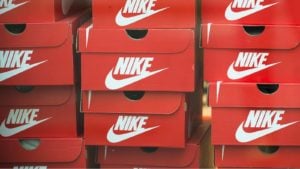For investors with a high-risk appetite, there can be plenty of opportunities to capitalize on buying controversial stocks. There could be potential riches to be made on stocks receiving bad news or experiencing controversies they are expected to overcome.
When it comes to controversial stocks, many reasons might motivate investors to sell. Ideological differences, the risk of companies failing to recover from their downturns or the prospect of punishment or sanctions can all harm the value of stocks. However, for investors who still believe in their fundamentals and underlying value, the opportunity to buy the dip and ride the market recovery of turbulent stocks can drive significant portfolio outperformance.
The fundamental reasoning here is that investors generally buy stocks on good news and sell on bad. Logically, this means that investors can buy stocks they believe will eventually recover their value.
The good news is there are plenty of examples of market resilience driving controversial stocks higher after a spell of underperformance.
Of the 10 biggest S&P 500 drawdowns since the 1960s, many of which came as a result of bad news, the average return for investors one year from reaching the bottom was 44.1%. While individual stocks can experience uneven recoveries for several reasons, the recovery rates of strong growth stocks can offer opportunities for profit among investors.
Nike (NKE)

With major sporting events like the Summer Olympics in Paris and the European Championships for soccer, 2024 has been filled with plenty of optimism for Nike (NYSE:NKE) in terms of sales performance. However, the first quarter saw the sportswear giant struggle to overcome a range of controversies surrounding its choice of outfits for its partners.
The stock fell 6% following a backlash as Nike unveiled a ‘playful update’ to the St. George’s Cross on the England National Team’s soccer jersey. It caused some consumers to accuse the brand of giving the national flag a ‘woke’ makeover.
This followed accusations the manufacturer made U.S. track and field outfits for athletes competing at the 2024 Olympic Games unnecessarily revealing.
So far in 2024, Nike’s Wall Street performance is down more than 13%. Yet apparent positive sales figures for the controversial England soccer jersey, for example, have some suggesting these were really strategic attempts at generating “buzz” around the new sportswear items.
Crucially, Nike’s performance during the previous European Championships and Olympic Games, both of which took place between in 2021, saw an astonishing market rally of over 30%. Should the impressive levels of exposure for the sportswear giants fuel its bottom line similarly this summer, we can expect an impressive market recovery.
Target (TGT)

Last year was a challenging year for Target (NYSE:TGT) as the retailer’s decision to stock LBGTQ+ clothing in its children’s section sparked a backlash among certain consumers. It resulted in Target’s stock falling 5% between April and June 2023 compared to the same period in 2022. It represented the firm’s first decline in six years over this time frame.
Target is suffering slow growth this year. The retailer’s decision to reintroduce its Pride collection in stores for 2024 on a smaller scale may see more short-term volatility for investors seeking a buy-in opportunity.
Another cause for short-term volatility is lingering high inflation rates in the U.S., which contributed to the retailer missing its Q1 2024 earnings expectations. However, recent news of inflation cooling could help supplement Target’s market recovery and drive more long-term growth for the stock.
Tesla (TSLA)

While the likes of Nike and Target have come into controversy due to perceptions of their attitudes towards cultural issues, Tesla (NASDAQ:TSLA) has struggled to shake off the political leanings of its tumultuous CEO, Elon Musk.
Ed Kim, president of leading consultancy AutoPacific, claimed the ‘behavior and politics’ of Elon Musk have put off a growing number of electric vehicle (EV) customers from purchasing Teslas. The stock’s troubled performance over the first half of 2024 suggests that Musk’s attitude could be hurting its performance. Tesla stock is down nearly 30% and has dropped more than 22% since Musk acquired Twitter in October 2022.
The acquisition of social network Twitter, now rebranded as X, has been particularly challenging for Tesla stock because of Musk’s outspoken use of the platform. The Tesla CEO uses it to share charged views on immigration and voter fraud. Musk also accused President Joe Biden of ‘treason’ over the handling of migrants.
While Musk remains the owner of X, it’s reasonable to expect more price volatility in Tesla’s stock. However, long-term investors should also look to the EV manufacturer’s innovation chain for assurances over the stock’s future.
Tesla remains committed to a growth strategy that’s focused on developing more affordable electric vehicles through the use of die-casting enhancements like Giga casting and the production of complex vehicle parts in a single piece. This, coupled with the firm’s commitment to delivering fully autonomous vehicles in the future, underlines a company that may be destined for significant growth, despite the short-term noise.
On the date of publication, Dmytro Spilka did not hold (either directly or indirectly) any positions in the securities mentioned in this article. The opinions expressed in this article are those of the writer, subject to the InvestorPlace.com Publishing Guidelines.
